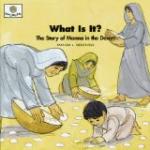“Now then, dearies,” smiled the irate old knight’s comfortable wife, “don’t you take on so, though I do allow it’s a nuisance, considering I have to get into my apricot satin to-night, with all those hooks. Pity Sir John Wetherbourne ain’t—isn’t here, it u’d never have happened I’m sure if he had been, seeing the way he has with him, though I can’t say as ’ow I approve of him so young and good-looking—and all these Eastern hussies around—wandering about so much by himself. I do wonder what ’appened—all right, lad, there’s many a slip between the aitch and the noovoh rich lip, h’appened to the girl he’s looking for. Over a year ago you say, Mary, my dear, since she disappeared at Ishmael, and not heard of since, and Sir John scouring Egypt with all the energy I used to use to the kitchen floor, and not half the result to show for it, eh, Timothy lad? Do you think he was in love with her, or is it a case of—oh, what’s them two words which mean that you can’t think of anything but one thing.”
“Ide fixe,” enlightened Diana Lytham.
“Eyedyfix! Sounds like one of those cocktails that heathen feller-me-lad’s always trying to poison me with, eh, Miss Diana,” chuckled the old manufacturer, who worshipped the cloth of aristocracy, and even reverenced the fringe.
“Oh, you bet he was in love all right, don’t you think so, Mary dearest,” and the small grey eyes snapped spitefully across at the good-natured, healthy girl, who had raised a weak resemblance of hate in her whilom school friend’s breast, more by the matter-of-course, jolly way she had helped lame dogs over stiles than the fact that such obstructions had never lain in her path.
“Are you talking about Jack and Jill? Everybody loved her, and she was made to be loved, was beautiful, wilful Jillikins. I wish he could find her, or a trace, or some news of her! Oh, but surely we are intruding upon his own affairs too much, and I wonder what has—— Oh, but listen—do listen, did you ever hear such a noise, and just look at the crowds! Why, the whole of old Cairo is coming this way.”
Even as she spoke, two Arabs, mounted on superb horses, and brandishing spears, dashed past the cars, shouting continuously what would be the equivalent of “clear the way” in English, just as to the sound of shouting and singing, the beating of drums, and clashing of cymbals, a stream of natives, dancing and waving their arms, poured into the square.
Round and round they spun about six great camels, which, hung with bells and decked from head to stubbly tail with glistening harness and embroidered saddle-cloths, stalked ahead, unheeding of the tumult; whilst riders of restless horses did their best to regulate the action and pace of the nervous animals.
Behind them walked scores of young men in snow-white galabeah, their impassive, delicately curved faces surmounted by the scarlet tarboosh, chanting that old-Egyptian marriage song of which the music score was lost some few thousand years ago, lying perhaps securely hidden in a secret chamber, undiscovered in the ruins of Karnak, but which song, without a single alteration of note or word, has descended from Rameses the Second down through the history-laden centuries to us, the discoverers and worshippers of ragtime.




